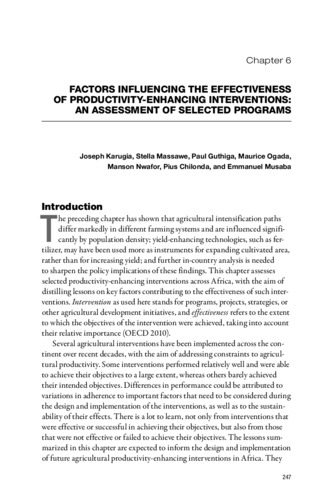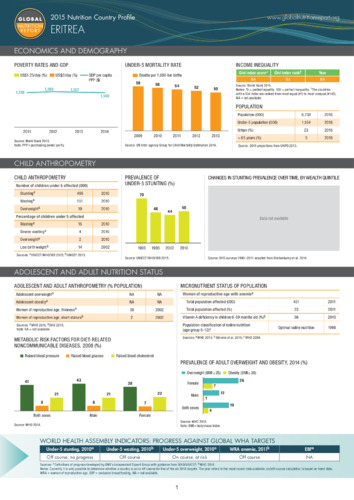Factors influencing the effectiveness of productivity-enhancing interventions: an assessment of selected programs
The preceding chapter has shown that agricultural intensification paths differ markedly in different farming systems and are influenced significantly by population density; yield-enhancing technologies, such as fertilizer, may have been used more as instruments for expanding cultivated area, rather than for increasing yield; and further in-country analysis is needed to sharpen the policy implications of these findings. This chapter assesses selected productivity-enhancing interventions across Africa, with the aim of distilling lessons on key factors contributing to the effectiveness of such interventions. Intervention as used here stands for programs, projects, strategies, or other agricultural development initiatives, and effectiveness refers to the extent to which the objectives of the intervention were achieved, taking into account their relative importance (OECD 2010).
Authors
Karugia, Joseph T.; Massawe, Stella C.; Guthiga, Paul M.; Ogada, Maurice; Nwafor, Manson; Chilonda, Pius; Musaba, Emmanuel
Citation
Karugia, J.; Massawe, S.; Guthiga, P.; Ogada, M.; Nwafor, M.; Chilonda, Pius; Musaba, E. 2016. Factors influencing the effectiveness of productivity-enhancing interventions: an assessment of selected programs. In Benin, S. (Ed.). Agricultural productivity in Africa: trends, patterns, and determinants. Washington, DC, USA: International Food Policy Research Institute (IFPRI). Chapter 6, pp.247-333. https://hdl.handle.net/10568/81288
Country/Region
Benin; Eritrea; Togo; Guinea; Rwanda; Sudan; Ghana; Zambia; Kenya; Congo; Burkina Faso; Mozambique; Malawi; Mali; Uganda; Zimbabwe; Nigeria; Ethiopia
Keywords
Tanzania; Africa; Western Africa; Middle Africa; Eastern Africa; Northern Africa; Agricultural Extension; Agricultural Policies; Agricultural Growth; Labour; Caadp; Land Ownership; Land Use; Productivity
Access/Licence
Open Access
Project
Policies, Institutions, and Markets







